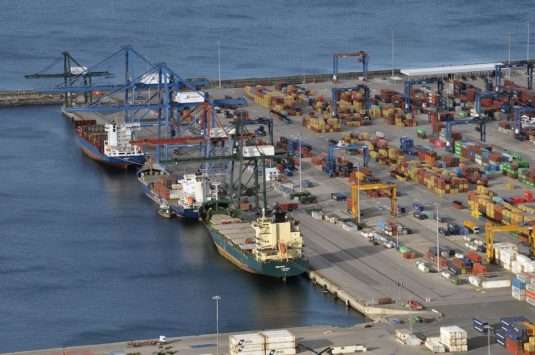The fruit of the joint work carried out over the last six months among the Customs Administration, the Port Authority of Bilbao- via its telematics platform – and CSP Iberian Bilbao Terminal, is that the Port of Bilbao’s container terminal has become the first terminal in Spain to comply with all the requirements of the new European Union Customs Code (UCC) due to it now being an authorised temporary customs warehouse within the import circuit and without losing competitiveness.
The previous months’ work, on the one hand, has been useful to certify after exhaustive testing, that the communication is rapid and in blocking those containers not complying with the rules. In addition, it has enabled the system to be refined and to integrate the UCC into the circuit without interfering with operations; and likewise, it has effectively demonstrated that it complies one hundred percent with all the requirements, which adds security to the transactions and avoids fraud.
In parallel, an application has been incorporated into the hauliers’ app enabling them to check whether a container is free for withdrawal, that is all the consignments in the container have been dispatched, and all the formalities carried out. In this way they save time and fruitless journeys are avoided.
As they assert from the CSP Iberian Bilbao Terminal “we can now certify that delivery of containers from the Port of Bilbao is completely controlled at both port terminal and Customs levels and all fields are now complete”.
This challenge supposes one step further at the reliability level of the information system after the new automatic terminal gates coming into operation; and the next step, which will be carried out over this year, will be the application of the UCC in the export circuit.

Why being an authorised temporary customs warehouse is obligatory
The new European rules make it compulsory for port terminals to be temporary customs warehouses. This means new responsibility for the terminals which must guarantee that customs norms are carried out inside their facilities. This change has obliged the terminal to gather all the Customs information directly, which demands a complex and exhaustive crossing of data with Customs and the Port Authority.
Before May this year, the Customs Authorities have completed their re-assessment of the temporary customs warehouses in accordance with the new UCC requirements. The time when adaptation to the new norms, together with the previous check on the exhaustive complying with the new rule, has enabled the CSP Iberian Bilbao Terminal to be the pioneer in carrying out UCC.

 Port access
Port access